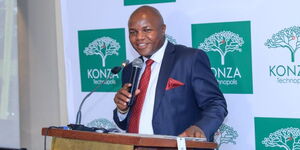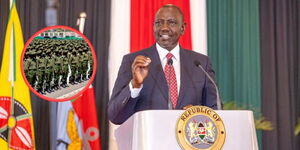Prospective employees often invest their time and efforts into job interviews, eagerly anticipating feedback that could shed light on whether they got hired or not.
However, the unfortunate reality is that many jobseekers are left in the dark, wondering why they did not receive feedback after the interviews.
The lack of communication causes lots of frustrations with candidates giving up after months of pending applications without any response.
Speaking to Kenyans.co.ke, recruitment officer and Human Resource Manager Edwin Mwaura argued that certain factors lead to the candidates not receiving any feedback.
High Volume of Applicants
Mwaura argued that employers and hiring managers handle large volumes of applications and hence it can be challenging for employers to provide personalised feedback to everyone. He attributed this to most organisations lacking an automated system to send the regret letters in bulk.
Further, upon conducting the interviews, the Human Resource managers opt to prioritise other tasks as opposed to providing feedback to all candidates.
Some candidates have also complained about HRs giving a sense of 'false hope' by providing positive responses during the interview session leading to the interviewees gaining confidence that they secured the job.
"That reminds me of an interview last year. I was the last one to be interviewed and it went so well. One interviewer actually said, 'All day we've not met a candidate like you, you're a breathe of fresh air'. Promised they'll communicate in a day or two whether successful or not. It's been eight months now," communications specialist Grace Njigua wrote on LinkedIn.
Responding to this, Mwaura noted that HRs ought not to provide any form of responses until the interviewing process is concluded.
"HRs should not give feedback on the interview, that is jumping the gun, such HRs have interviewing skills gap. They need to be trained on that because before you analyse, you need to understand what is needed and give recommendations. This is done at the tail end of the process," he stated.
Company Policy
Certain organisations have policies in place that restrict the sharing of feedback with candidates either due to fear of reprisal or legal issues.
In some cases, some employers fear potential legal consequences if the candidates claim or justify that they were discriminated upon during the interview process.
Further, some companies often hire jobseekers based on various factors including cultural fit, personality, and chemistry with the team, aside from their qualifications hence providing feedback based on these subjective elements could be difficult for employers to articulate.
Candidate Follow-Up
Mwaura noted that jobseekers who don't actively follow up with the company post-interview are likely not to receive feedback.
According to the HR specialist, showing continued interest and seeking feedback can demonstrate professionalism and may prompt employers to provide information about the interview performance.
Constructive Criticism
Mwaura agreed that providing the candidate detailed reasons for not acquiring the job may be a sound idea, he questioned whether they could handle the constructive criticism from the company.
"What usually happens is that we don't want to belittle someone, we will give a very general response, something like 'this is what we're not looking for at the moment but if you see a vacancy, feel free to reapply'
"It (providing feedback) can work, if we are able to give a definite reason such as your communication is wanting, improve more on analytical skills etc, but also can everyone handle the criticism?" he posed.
Pre-determined candidates
He added that in government institutions, some candidates often pre-select candidates and hence conduct interviews as a formality.
"In government, we also find HR managers exchanging candidates hence there are no vacancies. This is also done in ministries and parastatals. The process, however, ought to be based on integrity," he pointed out.












